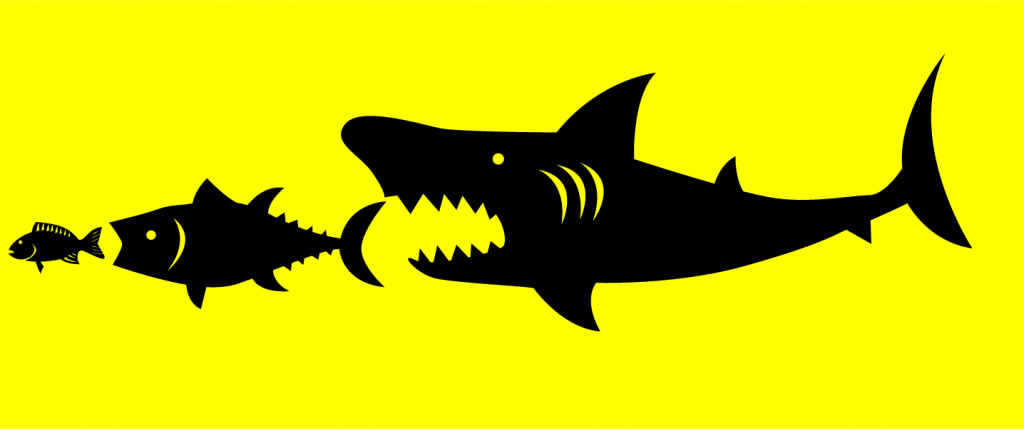Insights
Enforcement of dominance rules in India
March 4, 2022Enforcement proceedings
Enforcement authorities
Which authorities are responsible for enforcement of the dominance rules and what powers of investigation do they have?
Under the (Indian) Competition Act 2002 (the Act), the Competition Commission of India (CCI) is responsible for enforcement of the provisions of the Act. Appeals lie to the National Company Law Appellate Tribunal (NCLAT) (the Competition Appellate Tribunal (COMPAT) before 26 May 2017) and, from there, to the Supreme Court of India.

Investigative powers of the DG (the investigative arm of the CCI) include:
- summoning and enforcing the attendance of any person and examining him or her on oath;
- requiring the discovery and production of documents or material objects;
receiving affidavit evidence; - issuing commissions for the examination of witnesses or documents (a commission in this context refers to an officer to examine witnesses or documents that cannot be brought to the office of the investigating authority for some reason); and
- requisitioning of any public record or document, or copy of a public record or document, from any office.
The DG also has powers based on a warrant issued by the Chief Metropolitan Magistrate, New Delhi) of search and seizure, which include the use of reasonable force to enter premises, examination of seizure of documents and electronic equipment, and the taking of statements in relation to the subject matter of the investigation. In Competition Commission of India v JCB India and Ors (2019), the Supreme Court held that, even though the warrant issued expressly covered only entry and search, and not seizure, the DG was by necessary implication empowered to seize documents.
Sanctions and remedies
What sanctions and remedies may the authorities impose? May individuals be fined or sanctioned?
The CCI is empowered to:
- impose a penalty not exceeding 10 per cent of the infringing dominant enterprise’s average turnover for the preceding three financial years;
- pass cease-and-desist orders;
- order the division of a dominant enterprise to prevent an abuse of such dominant position; and
pass any orders the CCI deems fit.
Further, the CCI has the power and jurisdiction to pass appropriate interim orders pending investigation. Contravention of the CCI’s orders can invite further financial penalties and even criminal sanctions punishable by additional fines or imprisonment of up to three years, or both. The CCI may also impose significant fines for withholding information and providing false information.
Read More+
Under section 48 of the Act, individuals in charge of an enterprise contravening the provisions of the Act, or officers aiding the commission of such contraventions by the enterprise (by consent or connivance or through negligence), shall be liable to be proceeded against and punished under section 27 of the Act. The Supreme Court in Monsanto Company v Competition Commission of India is currently considering arguments that individual liability under section 48 arises only where a company has failed to comply with a CCI order.
In Excel Crop Care v CCI (2017), the Hon’ble Supreme Court clarified that the penalty amount has to be calculated on the ‘relevant’ turnover of the enterprise against which a violation has been found. The CCI will thus calculate penalties on the basis of the product/services covered by the infringement rather than total turnover.
The highest fine ever imposed by the CCI for abuse of dominance was in the Auto Parts case (2014), where a cumulative fine of 25.44 billion rupees (ie, 2 per cent of average annual turnover) was imposed on 14 car manufacturers. On appeal, however, the COMPAT mandated the companies to pay a 2 per cent penalty on the average annual turnover of spare parts in the aftermarket. The COMPAT’s judgment was stayed by the Supreme Court on appeal. The highest fine ever imposed by the CCI for abuse of dominance on individuals was in Shivam Enterprises v Kiratpur Sahib Truck Operators Co-operative Transport Society Limited and Ors (2015), where a cumulative fine of 112,297 rupees was imposed on eight individuals.
The Competition (Amendment) Bill, 2020 has proposed to introduce settlements and commitments for vertical agreements and abuse of dominance violations to facilitate speedy disposal of cases and efficient utilisation of the regulator’s resources. The proposed amendment will allow defendants to offer voluntary undertakings after the prima facie order is issued and such voluntary undertakings will be subject to the approval of the CCI.
Enforcement process
Can the competition enforcers impose sanctions directly or must they petition a court or other authority?
The CCI and the NCLAT can directly impose sanctions without recourse to courts or other authorities.
Enforcement record
What is the recent enforcement record in your jurisdiction?
With covid-19 hitting the country, there were several unique developments in the CCI’s practice this year, including a shift to virtual hearings and online filings. Case law on abuse of dominance also reflected the pandemic’s effects. In an interim decision against MakeMyTrip India and Ibibo Group (together MMT-Go), for instance, the CCI stated that consumer preferences and distribution architecture had shifted in favour of digital distribution channels with the pandemic; access to a dominant platform (an online travel agent in that case) was necessary to ensure visibility and continuing viability of smaller market participants which were dependent on such platforms.
In Harshit Vijayvergia v Indian Railways (2021), the CCI rejected allegations that Indian Railways had abused its dominant position in the market for transportation of passengers by rail in India by increasing fares excessively during the covid-19 pandemic. In an approach tailored to the demands of the times, the CCI found that the Indian Railways had, following decisions of the central and some state governments, decided to increase its fares in order to discourage unnecessary travel in the pandemic and held that this could not be regarded as abusive.
The pandemic did not, however, affect the CCI’s robust enforcement actions, and the CCI continued to tackle several markets, including several complex ones and those which are governed in parallel by a number of sectoral regulations. The CCI concluded its assessment of NSE in Manoj K Sheth v NSE (2021) where it found that NSE was dominant in the narrowly drawn market for ’providing co-location services for algo-trading in securities to the trading members in the territory of India.’ Despite the service being examined in parallel by the securities authorities and various other courts, the CCI exercised its jurisdiction to examine whether the technology that had been adopted was prone to manipulation. The CCI ultimately held there was no breach of section 4 since the choice of technology was made in good faith and there was no fraudulent conduct by the NSE.
After an investigation that had been ordered by the Supreme Court on appeal, the CCI closed a case against taxi-aggregator Uber, rejecting arguments that it had engaged in predatory pricing. Defining the relevant market as that for ‘radio taxi services in Delhi-NCR’, the CCI found that Uber and fellow-taxi aggregator Ola operated in a highly competitive market with fluctuating market shares and repeatedly displacing each other as market leader. As Uber was not able to sustain a high market share for a reasonable period, it could not be regarded as dominant.
Keeping with international trends, the CCI has increased its scrutiny in digital markets with several investigations being ordered.
In Umar Javeed v Google LLC (2019), the CCI initiated investigation against Google for making pre-installation of the entire Google Mobile Services suite mandatory on OEMs. The CCI was of the prima facie view that such an imposition was an unfair condition and the abusive leveraging of Google’s dominance in Play Store to protect relevant markets such as online general search. A parallel investigation was ordered by the CCI in the case of Kshitiz Arya v Google LLC (2021) on similar allegations made against Google in relation to smart televisions. in addition to an investigation in the Google Pay case (2020), a fourth investigation against Google has been directed in Digital News Publishers Association v Alphabet Inc (2022), where the CCI is examining issues of unilateral determination of ad revenue sharing between Google and publishers. Interestingly, in making its threshold decision, the CCI has taken note of developments in other jurisdictions such as France and Australia, where Google had been asked to enter into fair/good faith negotiation with news publishers. Investigations have also been ordered against Apple and WhatsApp by the CCI.
The CCI has also been willing to close cases against technology companies where the elements of abuse are not made out. In WhatsApp Pay (2020) the CCI found that there was no evidence that WhatsApp was forcing users to use its payments service, and accordingly, dismissed the allegations and closed the case at the threshold stage. In another case against Google, the CCI rejected the allegation of leveraging the dominance of Gmail to enter into or protect the Google Meet service.
It is also worth noting that the direction of an investigation is not necessarily conclusive of abuse of dominance, and the CCI has been willing to arrive at a final decision which departs from its prima facie views. The CCI, for instance, examined allegations against Intel for abuse of its dominant position in the market for processors for servers in India and directed an investigation into the matter. After a lengthy investigation by the DG, the CCI concluded that Intel had not in fact denied access to requisite files as had been alleged by the complainant, so no question of abuse arose.
The CCI has also been increasingly exercising its power to grant interim relief in exceptional situations under section 33 of the Act. It issued an interim order directing MMT-Go to relist certain hotel properties on their on-line booking portals. This order was made in the context of earlier CCI orders directing an investigation into MMT-Go for abusing a dominant position and into commercial arrangements between MMT-Go and Oravel Stays (OYO) under which MMT-Go allegedly agreed not to list OYO’s closest competitors. The order was set aside by the High Court of Gujarat on procedural grounds. The CCI also adopted interim measures to prevent the issuing of communications dissuading participation in unrecognised tournaments organised by the Amateur Baseball Federation of India and Suburban Table Tennis Association and directing the associations not to threaten players wanting to participate in such events.
Contractual consequences
Where a clause in a contract involving a dominant company is inconsistent with the legislation, is the clause (or the entire contract) invalidated?
Under section 27 of the Act, the CCI is, in addition to imposing penalties, passing cease and desist orders and ordering the division of a dominant enterprise, empowered to pass any orders its deems fit.
The CCI has, on occasion, addressed the modification of agreements. It has not sought the invalidation of entire agreements.
The CCI, in Belaire Owner’s Association v DLF Limited (2011), held that DLF abused its dominant position in the market for ‘high-end residential properties in Gurgaon’ by imposing unfair conditions in the Apartment Buyer’s Agreement (ABA) for the sale of its services to consumers. Further, the CCI held the unfair conditions to be in contravention of section 4 and thus ordered modification of these. On appeal, the COMPAT (2014) upheld the CCl’s order that DLF abused its dominant position in the market. However, the COMPAT refused to look into and consider the validity of the ABAs, which were entered into prior to the Act coming into force, and were voluntarily executed, without the element of compulsion.
Further, the COMPAT, in the Auto Parts case, directed the automotive manufacturers to remove all restrictions on supply of spare parts, rather than invalidating the entire supply contracts or modifying the relevant clauses that were held to be in contravention of section 3(4).
Private enforcement
To what extent is private enforcement possible? Does the legislation provide a basis for a court or other authority to order a dominant firm to grant access, supply goods or services, conclude a contract or invalidate a provision or contract?
The CCI and the NCLAT are exclusively responsible for enforcing the provisions of the Act.
Damages
Do companies harmed by abusive practices have a claim for damages? Who adjudicates claims and how are damages calculated or assessed?
Under section 53N of the Act, any person, enterprise or government harmed by the conduct of an enterprise under section 4 can approach the NCLAT for compensation on the basis of an order of the CCI or NCLAT finding a contravention of the Act. The CCI itself has no power to grant compensation.
The Act further provides that class actions for compensation may also be instituted. The procedure to be followed in such cases will be the same as the procedure for class actions already present under the Indian civil procedure.
At present, the NCLAT is considering a number of compensation claims. A claim has been filed by MCX Stock Exchange Ltd against the NSE, on account of alleged losses suffered owing to the zero-pricing strategy adopted by the NSE in the currency derivatives segment. Another compensation application pending before the NCLAT is against Coal India on the basis of the CCI’s decision in 2014, finding Coal India guilty of abuse of dominance. Initially, the claimant raised claims of approximately 9 billion rupees which, after the decision of the COMPAT in 2016, was increased to approximately 15 billion rupees to account for alleged losses suffered up to 2016. The NCLAT is also considering a compensation application against the Ghaziabad Development Authority, a statutory authority for housing and development, for losses suffered by allottees of flats under a housing scheme on account of imposition of unfair conditions and price for the allotments.
The NCLAT in the case of Food Corporation of India v Excel Crop Care (2020) admitted an application for compensation for losses alleged to be suffered as a result of bid-rigging in the supply of aluminium phosphide tables. The order passed by the CCI in 2012 establishing breach was appealed to the COMPAT, which upheld the order in October 2013, and from there to the Supreme Court, which upheld the findings of breach in May 2017. An application for compensation was filed with the NCLAT in July 2017, just over two months after the Supreme Court judgment. The NCLAT rejected arguments that a compensation application could only lie pursuant to a CCI or COMPAT order and not pursuant to a Supreme Court judgment. It held, in the absence of a statutory limitation period, that applications for compensation had to be made within a ‘reasonable’ period of three years. Time thus ran from the Supreme Court judgment and the application had been made well within the three-year period.
Appeals
To what court may authority decisions finding an abuse be appealed?
Under section 53B of the Act, the CCI’s decisions finding an abuse may be appealed to the NCLAT. Further, under section 53T of the Act, any decision or order of the NCLAT may be appealed to the Supreme Court of India.
This article was originally published in Lexology on 4 March 2022 Co-written by: Harman Singh Sandhu, Partner; Rohan Arora, Partner; Shweta Shroff Chopra, Partner. Click here for original article
Read Less-
Disclaimer
This is intended for general information purposes only. The views and opinions expressed in this article are those of the author/authors and does not necessarily reflect the views of the firm.




